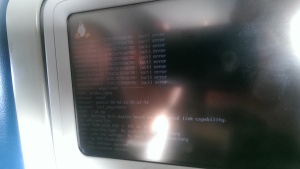Welcome back! My last post in this intermittent series considered the records implications of the grievances articulated by the colonists in British North America against King George III in the Declaration of Independence, making it more of a prequel to US Records Law because the United States was not an independent country in 1776. This post will cover the first law passed by the United States Congress which addressed issues of records and information management, the Records Act of 1789, formally known as an Act to provide for the safe-keeping of the Acts, Records and Seal of the United States, and for other purposes. This was just the fourteenth law passed by the first Congress!
The act itself is broken up into seven sections, in which a number of information management issues are addressed. The first section, however, simply renames the Department of Foreign Affairs as the Department of State, the name by which this executive branch department is still known today. The second section is where things get a bit more interesting for our present purposes. It directs the Secretary of State, upon receiving information about the passage of a new law by congress, to “cause every such law, order, resolution, and vote, to be published in at least three of the public newspapers printed within the United States, [and shall also] cause one printed copy to be delivered to each Senator and Representative of the United States, and two printed copies duly authenticated to be sent to the Executive authority of each State; and he shall carefully preserve the originals, and shall cause the same to be recorded in books to be provided for the purpose.” 1 Stat. 68 (Chapter 14)
Here, we see the recognition that providing access to the law of the land was a fundamental responsibility of the newly formed federal government. As newspapers were a vital channel for information dissemination in the colonial and early republican eras, this was an obvious choice for the nascent federal government to utilize in spreading the word about new laws across the country.
Thanks to the magic of the Library of Congress’ digitization efforts, we have an example of this process in action to examine. Here’s the link to a printed version of this very law: U. S. Laws, S. (1789) An act to provide for the safe keeping of the acts, records, and seal of the United States, and for other purposes. New York: Printed by Thomas Greenleaf. New York. [Pdf] Retrieved from the Library of Congress, https://www.loc.gov/item/2020767853/. This broadside printed in New York City would have helped spread the news of this law’s passage.
Interestingly, the responsibility around these records and information management tasks were placed within the Department of State in this law. As one of the original cabinet departments established by George Washington, this agency has a long and wide-ranging history and has been involved in many different activities over time. Remember that the National Archives and Records Administration will not be founded for 145 years! How many laws concerning records management in the federal government will be cover before then? Well, you’ll have to stay tuned and find out in my next post! For now, that’s all on the Records Act of 1789 and the first attempt by Congress to regulate the management of government information in the new United States.



